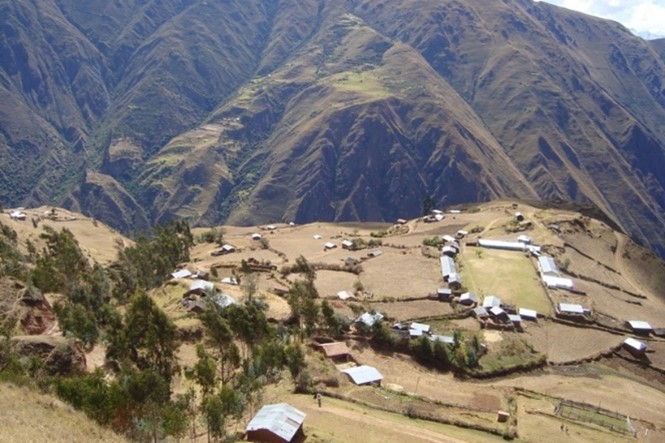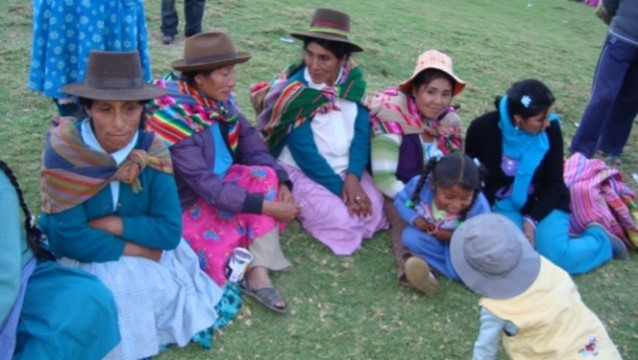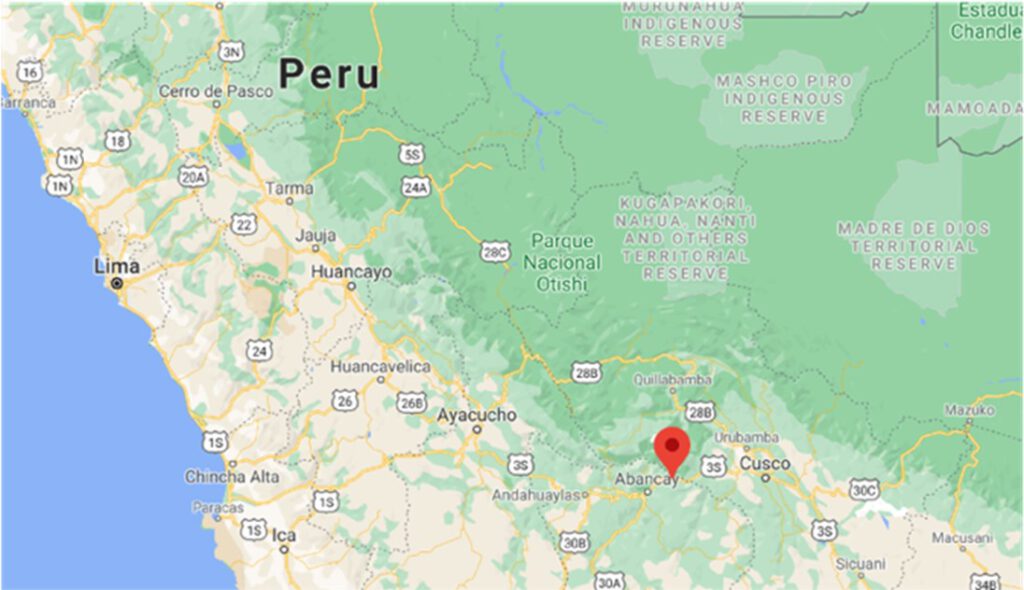Peru
Abancay
Hintergrund
Im peruanischen Hochland hat der Klimawandel die Bauernfamilien vor neue Herausforderungen gestellt: Veränderte Wetterbedingungen führen zu kurzen, starken Regenfällen, die Mutterboden und Samen wegspülen, gefolgt von langen Monaten ohne Niederschlag. Erschwerend kommt hinzu, dass die Bauern mit Ressourcenmangel und fehlendem Know-how konfrontiert sind, sodass ihr Kampf um den Lebensunterhalt zur Entwaldung und Überweidung von Land führt und die Situation weiter verschärft.
In Abancay, Peru, haben die Gemeinden zwar ein funktionierendes Wassersystem mit Haushaltsanschlüssen, aber die kürzeren Regenzeiten lassen die Wasserquellen austrocknen, und die Bevölkerung ist viele Monate im Jahr ohne Trinkwasser. In diesem Projekt wird die bewährte REPANAS-Methode angewendet, mit der ein Naturschutzgebiet um Wasserquellen herum eingerichtet und vor der Kontamination durch Mensch und Tier geschützt wird. Die dadurch unterstützte und gestärkte Regeneration der Vegetation und der Bodenbedeckung, insbesondere durch Baumpflanzaktionen, verbessert die Fähigkeit zur Aufnahme von Regenwasser, wodurch das Grundwasserniveau steigt.
Projektstandort
Das Projekt wird in neun Gemeinden in Abancay im Süden Perus nahe Cusco durchgeführt. Die Gemeinden befinden sich auf über 3000 Meter über dem Meeresspiegel und sind nur über holprige Straßen erreichbar. Die Bevölkerung lebt verstreut, wie es für die Region typisch ist, und die Gemeinden haben nur eingeschränkten Zugang zu nahe gelegenen Städten.
Projektbegünstigte
Die Bevölkerung besteht aus indigenen Quechua-Familien, die ihren Lebensunterhalt hauptsächlich mit Subsistenzlandwirtschaft und Viehzucht verdienen. Das Projekt wird 1850 Personen direkt zugutekommen. Die Gesamtwirkung des Projekts wird jedoch größer sein, da auch die Menschen der umliegenden Dörfer von der erhöhten Wasserqualität und -quantität profitieren werden.
Projektaktivitäten
- Aufbau eines gemeinsamen Verständnisses und Engagements der Gemeinschaft für Maßnahmen zur Erhaltung von Land und Natur
- Schaffung von fünf REPANAS-Naturschutzgebieten mit einer Gesamtfläche von 700 Hektar, die die Wasserquellen vor Verschmutzung schützen und die natürliche Regeneration fördern
- Einrichtung von drei Baumschulen, in denen einheimische Pflanzen gezüchtet werden, die die Wiederaufforstung unterstützen und die Wiederherstellung von Boden- und Pflanzendecke beschleunigen
- Bau von Entwässerungsgräben und „Ccochas“ (künstlich angelegte Wasserreservoirs in den Anden), die sich mit Regenwasser füllen, das in den Boden zur Auffüllung des Grundwasserspeichers versickern kann
- Schulung der Landwirte in verbesserten Umwelttechniken in der Landwirtschaft und effizienter Wassernutzung
- Einrichtung eines Wassermanagement-Komitees zur Förderung eines verantwortungsvollen Umgangs mit Wasser und zur Sicherstellung einer laufenden Wartung
Projektziel
Die REPANAS-basierten Schutzgebiete werden die Wassermenge und -qualität erhöhen. Dies hat wiederum positive Auswirkungen auf die soziale und ökologische Situation. Darüber hinaus werden das wachsende Bewusstsein und die verbesserten Praktiken die kontinuierliche Erholung der Natur und den Respekt gegenüber der Umwelt fördern.
Partnerorganisation
Caritas Abancay arbeitet seit 60 Jahren in der nachhaltigen Entwicklungszusammenarbeit mit Projekten, die sich auf Umweltschutz, Ernährungssicherung, Gesundheit und Landwirtschaft konzentrieren. Ihre Arbeit fußt auf einem partizipativen Modell, das die lokale Kultur berücksichtigt.
Projektzeitraum
November 2021 bis Dezember 2024
Kosten
261.196 Euro
Förderer
– Bundesministerium für wirtschaftliche Zusammenarbeit und Entwicklung
– Oswald Stiftung
Ansprechpartner/in
Monica Denomy
WasserStiftung
m.denomy@wasserstiftung.de


